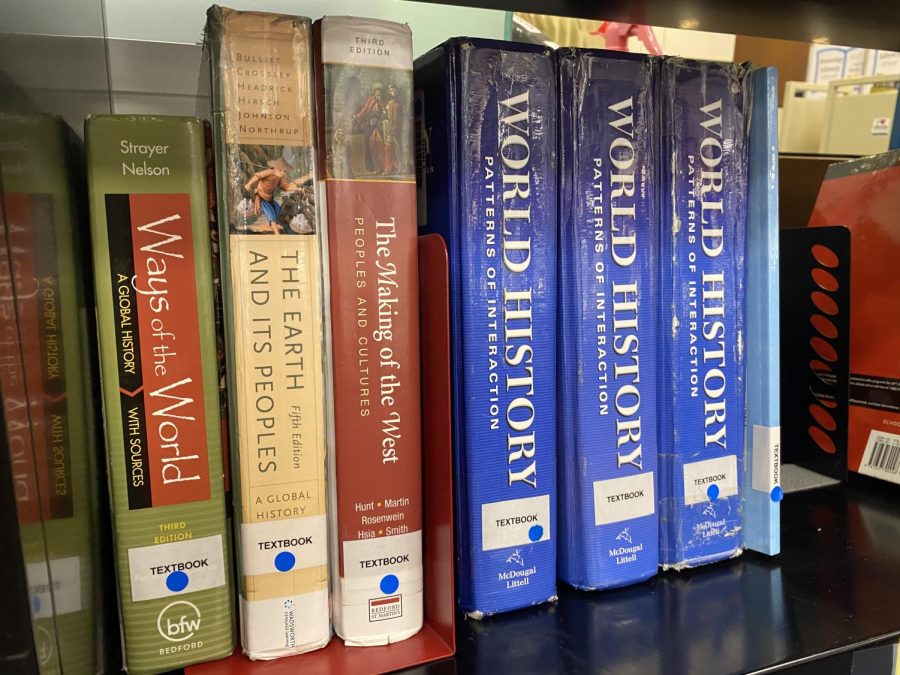Addressing historical biases in TAS history classes
Addressing historical and political biases in history class can be a challenge, especially when the curriculum itself is biased. Much knowledge regarding social awareness is valued from learning history, but curriculums can also brainwash and deter one from obtaining the desired societal awareness. History teachers at Taipei American School describe the way in which these biases can be best addressed through class activities, assessments and teaching methods.
The extent to which historical biases can be addressed depends on how the teacher approaches the curriculum. Upper School History Teacher Mr. Walker, who teaches both AP World History and AP European History, approaches the acknowledgement of historical biases through initiating the understanding that there are multiple perspectives. “I fully recognize that I am a white man teaching world history and European history… I need to be considerate of people who are not white, [not male and not from the same culture as his own],” Mr. Walker said.
“One big thing that I tried to achieve is to bring in non-traditional perspectives [to broaden the representation],” Mr. Walker said. Mr. Walker often addresses how minorities approach various historical events. For example, when tackling the imperialism topic in AP European History, Mr. Walker shifted the focus to resistance and reactions by non-Europeans.
History and Social Studies Department Chair Dr. Brandon Maguire encourages diversity when interviewing teachers for teaching positions in the department. “Looking back at the 18 years I’ve been here, I [value] diversity [in the History and Social Studies Department],” Dr. Maguire said. Homogeneity within the department can translate into a single-perspective education.
Many class activities are employed by history teachers to instigate a multicultural historical lens. In AP United States History, students made a presentation on the “Greatest Women Civil Rights Leader of All Time” as their unit assessment. “[This activity] shows us how important it is to educate ourselves on information beyond what is in history textbooks,” AP United States History student Laura Hwa (‘22).
Though learning history is ultimately up to interpretation, various teaching approaches to address the historical biases prevalent in many history curriculums may change the way history is perceived.


![Sofia Valadao [Erin Wu/The Blue&Gold]
Erin Wu [Annabelle Hsu/The Blue&Gold]](https://blueandgoldonline.org/wp-content/uploads/2025/05/erin-sofia-pic-600x450.png)
![Dr. Simeondis, Mr. Anderson. [Annabelle Hsu/The Blue&Gold]](https://blueandgoldonline.org/wp-content/uploads/2025/05/teachers-600x338.jpg)
![[PHOTO COURTESY OF UNCULTURED, JUNIPER AND CO.]](https://blueandgoldonline.org/wp-content/uploads/2025/05/student-businesses-600x338.png)
![Photo of the girl's varsity badminton team [PHOTO COURTESY OF TAS ATHLETICS]](https://blueandgoldonline.org/wp-content/uploads/2025/05/BadmintonTeam-04839-600x338.jpg)
![The Institute for Speech and Debate, now based all across the east coast of the US. [PHOTO COURTESY OF MR. WILLIAMS]
Mr. Morris' various ceramic artwork. [PHOTO COURTESY OF MR. MORRIS]](https://blueandgoldonline.org/wp-content/uploads/2025/05/Untitled-design-1-600x459.png)
Richard Arnold • Sep 11, 2021 at 9:49 pm
Audrey,
Thanks for addressing this important issue.
Hopefully we’ll explore improving how we understanding a more complete, diverse, accurate US history in our APUSH class this year.
I welcome your suggestions.
Mr. Arnold